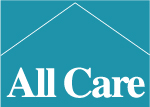Eileen Cohn, MSOTR/L, CAPS received her Occupational Therapy Assistant certification from North Shore Community College in 2006 and her Masters in Occupational Therapy from Salem State University in 2011. Having vast experience in both hospital settings and school systems, Cohn left Spaulding Rehabilitation in 2011 to work in home care with All Care VNA. Cohn became a certified Aging in Place Specialist in 2015 through the National Home Builders Association and is currently working with local community organizations to ensure safety in the home.
 Occupational therapy, or OT, has been an integral healthcare profession for almost a century, yet remains one of the most unrecognizable and misunderstood concepts in the healthcare field. The World Federation of Occupational Therapists defines OT as, “a client-centered health profession concerned with promoting health and well-being through occupation (WFOT, 2016)”. In simpler terms, occupational therapists help individuals across the lifespan participate in daily activities that are meaningful to them or as we call them, occupations. Typical required daily occupations for an adult include such tasks as bathing, dressing, and cooking a meal; however, activities of leisure are also important and meaningful occupations in an individual’s life. When an individual has a change in their ability to perform their daily occupations, as a result of a stroke, hip replacement, or dementia, for example, an OT is able to provide therapy based on each individual’s functional need and help the person regain their lost or impaired skills. OTs do so by providing customized assessments and treatment plans to help people achieve maximum independence in performing their daily occupations.
Occupational therapy, or OT, has been an integral healthcare profession for almost a century, yet remains one of the most unrecognizable and misunderstood concepts in the healthcare field. The World Federation of Occupational Therapists defines OT as, “a client-centered health profession concerned with promoting health and well-being through occupation (WFOT, 2016)”. In simpler terms, occupational therapists help individuals across the lifespan participate in daily activities that are meaningful to them or as we call them, occupations. Typical required daily occupations for an adult include such tasks as bathing, dressing, and cooking a meal; however, activities of leisure are also important and meaningful occupations in an individual’s life. When an individual has a change in their ability to perform their daily occupations, as a result of a stroke, hip replacement, or dementia, for example, an OT is able to provide therapy based on each individual’s functional need and help the person regain their lost or impaired skills. OTs do so by providing customized assessments and treatment plans to help people achieve maximum independence in performing their daily occupations.
An emerging trend within the healthcare field is the concept of Aging in Place. Aging in Place refers to the ability of an individual to remain in their chosen residence for as long as they are able. As an individual ages or has changes in their health, often times their residence is not equipped to provide a safe living space. As occupational therapists, and even more specifically, home care based OTs, we are incorporating this concept continuously in our practice. As the American Occupational Therapy Association states, the role of OT in the aging in place is, “to enhance the quality of life for older adults in their home environment, allow them to participate in valued activities, and ensure that people who plan to stay in their homes as they age make the necessary modifications to do so (AOTA, 2011). “
As OTs we have extensive knowledge of body as a system as it relates to specific diagnoses, therefore we can perform comprehensive customized home assessments based on the specific safety and functional needs of an individual. In addition, OTs can recommend home modifications and identify products and equipment that can be used to increase accessibility. This can be on a small scale basis such as installation of grab bars or ramps or on a larger scale with building professions by collaborating on design strategies for creating attractive, barrier free living space during remodeling projects. The trend of aging in place not only effects people with immediate health needs but also individuals who are using it as preventative means for long term planning or to increase the accessibility of their home for others, also referred to as visitability. The goal, regardless of each need, is to allow the individual to live as independently as possible for as long as possible in their own home, or help them age in place while performing meaningful daily occupations.
For over 100 years, All Care has been delivering the highest quality, cost-effective home health care to our patients in the 50 communities we serve throughout Greater Boston, the North Shore, and the Merrimack Valley. From VNA, Hospice, Private Care Services, Adult Day Health, and Adult Foster Care, All Care is prepared to meet all your needs at every level of care. For more information on All Care’s Joint Replacement Program or to learn more about alternative home healthcare options and accessibility, please visit www.allcare.org or call 800-287-2454.
